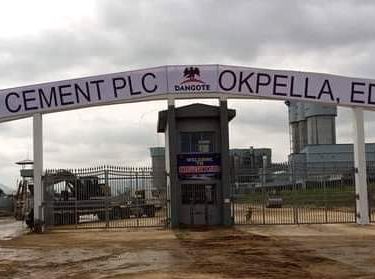The 650,000bpd Dangote Petroleum Refinery has been described as the 9th wonder of the world.
And the founder cum Chairman of the Dangote Group, Mr Aliko Dangote assured that the refinery will boost Nigeria’s GDP target of $1 trillion by 2030.
Senate President, Godswill Akpabio, who led the leadership of the 10th Senate on a tour of the Refinery in Lagos said Dangote deserved all the accolades for this feat noting that ordinary residence of Nigeria’s Vice-President could not be completed until after 14 years.
Describing the refinery as quite unbelievable, Akpabio said the Senate and the entire National Assembly would come up with a robust legislation that would protect the project and others like it.
“As I said we will do our report and we will speak to Mr President to put a stop to fertisliser import to Nigeria. You will hear from us soon.”
Also speaking, Lagos State governor, Babajide Sanwo-Olu, enthused that it is a privilege that the refinery happened in “our time, our state and our country. People talk about dreams, but only few can make it happen. Dangote has put Lagos State and the whole of Nigeria on the world map of excellence.
“I am happy the senate came to see for themselves; Dangote was not ready to rest after successfully building the largest cement factory chain in Africa, second largest sugar refinery in the world. With investment like this, I can assure you that we are on the right path to meet the projected GDP of $1trn by 2030.
“You have the key to city, I have given you long time ago and I am happy you are using it very well,” Governor Sanwo-Olu stated.
In his remark, Dangote explained that the “visit could not have come at a more auspicious time than now just as the organization is in the process of bringing the various units of this complex integrated refining processes on stream, an eagerly awaited move.”
He stated further that the Dangote Refinery “produces a wide range of high-quality petroleum products, including premium motor spirit (petrol), diesel, kerosene, and jet fuel, all meeting the highest international standards (Euro V Grade).
The Refinery apart from adding value to our crude oil, will yield 900,000 KTPA of Polypropylene and 36,000 KTPA of Sulphur and carbon black as by products.
“The Refinery will help boost Nigeria’s economic growth, with the creation of thousands of direct and indirect jobs. During the construction stage, it supported over 150,000 jobs, made up of mostly Nigerians. These Nigerians in the process acquired various skills that are still useful in other construction projects.
“The capacity of the refinery is enough to satisfy domestic demands for refined products. The Refinery will export about 50 per cent of its production thereby generating foreign exchange for the country. It will lead to growth in adjacent sectors such as logistics, shipping, engineering, and servicing.
“The Refinery has the requisite capacity to provide energy security both by providing a ready home for our crude and in ensuring steady availability of petroleum products for all. Nigerians will also get to partake in the financial returns once we list the Refinery on the NGX.
“We are thus making an important contribution to this administration’s plan to grow our GDP to $1 trillion.
“Our Group is at the vanguard of job creation and employment generation in Nigeria. We are the biggest employer of labour after the Federal Government. Dangote Cement sustains about 70,000 (Seventy thousand) direct and indirect jobs across Africa, while the Refinery, Petroleum Chemical Complex and Fertiliser will be able to create over 150,000 (One hundred and fifty thousand) direct and indirect jobs.
“We have remained one of the biggest contributors to government coffers as our three subsidiaries, Dangote Cement, Dangote Sugar Refinery and NASCON Allied Industries paid a total of N788.98 billion as tax and N276 billion in VAT in three years.
“We envision in Nigeria the equivalent of Jamnagar in India where crude oil refining is the backbone of specialised industrial zones, transportation networks, and ancillary industries, contributing to the overall industrialisation of the region. Or Saudi Arabia’s Jubail Industrial City, which is also undergirded by large scale petrochemical complexes.




